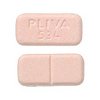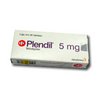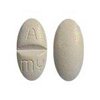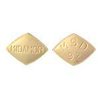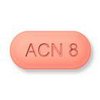INDICATIONS
The combination of Hydrochlorothiazide and Triamterene is used to treat fluid retention (edema) and high blood pressure (hypertension). Hydrochlorothiazide is a thiazide diuretic (water pill) that helps prevent your body from absorbing too much salt, which can cause fluid retention. Triamterene is a potassium-sparing diuretic that also prevents your body from absorbing too much salt and keeps your potassium levels from getting too low.
INSTRUCTIONS
Take this medication exactly as it was prescribed for you.
- Do not take the medication in larger amounts, or take it for longer than recommended by your doctor.
- Your doctor may occasionally change your dose to make sure you get the best results from this medication.
- Take each dose with a full glass of water.
- To be sure this medication is not causing harmful effects, your blood will need to be tested on a regular basis. Your kidney or liver function may also need to be tested. Do not miss any scheduled appointments.
- Hydrochlorothiazide and Triamterene can interfere with the results of certain medical tests. Tell any doctor who treats you that you are using a thiazide diuretic.
- If you need to have any type of surgery, tell the surgeon ahead of time that you are taking Hydrochlorothiazide and Triamterene. You may need to stop using the medicine for a short time.
- If you are being treated for high blood pressure, keep using this medication even if you feel fine. High blood pressure often has no symptoms.
- If you miss a dose, take the missed dose as soon as you remember. If it is almost time for your next dose, skip the missed dose and take the medicine at the next regularly scheduled time. Do not take extra medicine to make up the missed dose.
Ask your health care provider any questions you may have about how to use Triamterene.
STORAGE
Store this medication at room temperature away from heat, light, and moisture. Do not store in the bathroom. Keep in a tight, light-resistant container. Keep Triamterene out of the reach of children and away from pets.
MORE INFO:
Active Ingredients: Triamterene and Hydrochlorothiazide.

